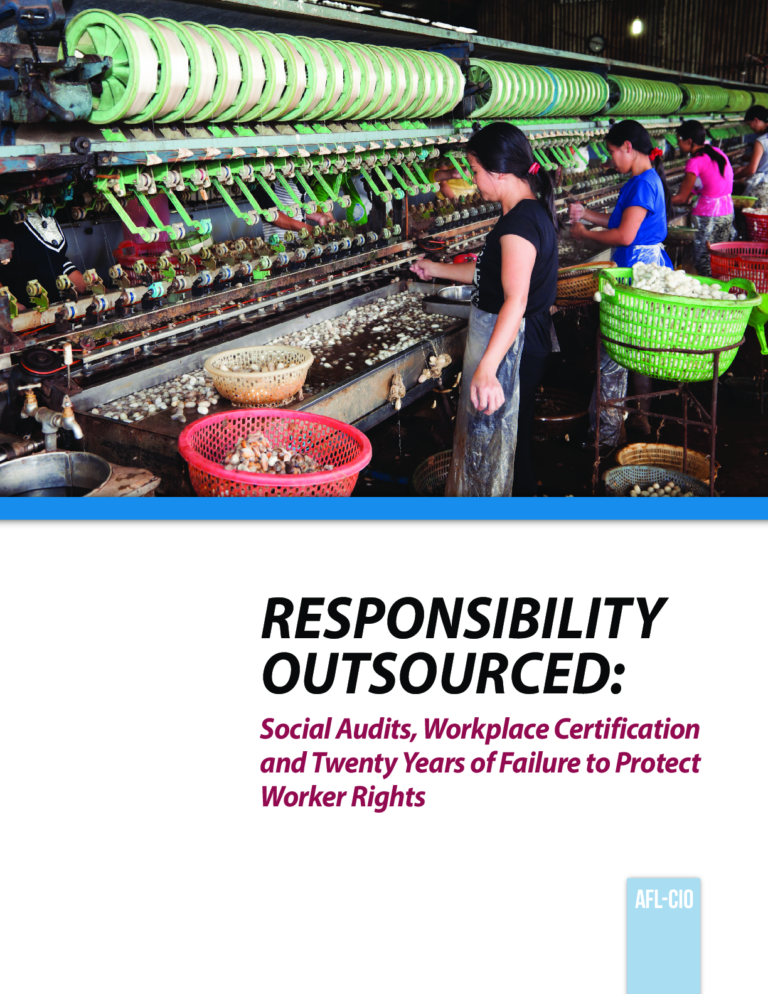The failure of governments to protect workers’ rights in the global economy has left a yawning gap of regulation and helped spawn an $80 billion industry in corporate social responsibility (CSR) and social auditing. Yet the experience of the last two decades of “privatized regulation” of global supply chains has eerie parallels with the financial self-regulation that failed so spectacularly in 2007 and plunged the world into deep and lasting recession. This detailed and extensive report by the AFL-CIO reveals just how bad much of the CSR industry has been for working people. Not only has it helped keep wages low and working conditions poor, it has provided public relations cover for producers whose disregard for health and safety has cost hundreds of lives. The AFL-CIO research underscores the central failing of the CSR model, which is based mainly on short and cursory visits to factories and no proper discussion with workers. This, coupled with the big global brands holding on to the “Walmart” model of driving prices to local producers ever lower and demanding ever-faster production, the dominant social auditing model will never achieve decent, secure jobs for the millions of workers at the sharp end of the global economy.

